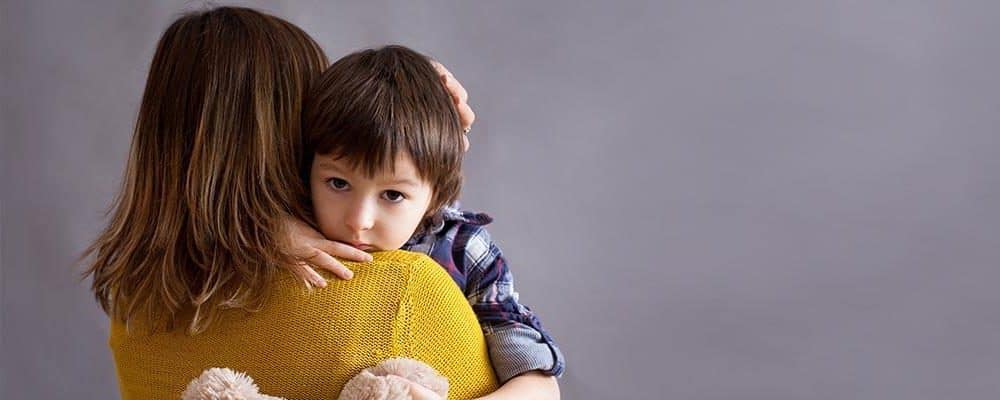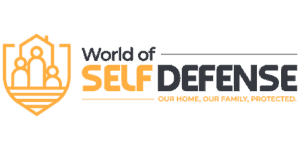
Being a fairly new dad with a handful of 3 kids (toddlers) takes on a totally new meaning once we step outside of our haven they know as home. At home, their brand new minds and little bodies are smothered with love, joy and happiness – yet, they are still to learn about the harsh reality of this world!
What is an appropriate age for kids to start self-defense?
If it’s with a private instructor or Dojo, most places start teaching kids self defense from as early as 3 years old, while other places have a minimum age restriction of 10 years old all depending on the fighting style of the self defense training, it is also very important to consider these guidelines with advantages and disadvantages of teaching your child self defense at different ages as we look into it further below.
Should Kids Learn Self-Defense In The First Place?
Considering the alarming rate and increase in child trafficking globally, our kids should have the option of being prepared for a worst-case scenario, it’s our duty as parents to teach them some plan of action, whether it be self defense or just outsmarting an attacker whenever they notice something out of the ordinary.
So, my answer to this question is a Yes, but of course to each his own. Personally speaking, all 3 of my kids will likely learn about self defense at different ages based on our parental instinct and their individual abilities.
As always, we all have a purpose for why we do something, and in this case, we’re obviously concerned about our precious child’s safety and want to ensure that we, as parents have control over that as much as possible. The scary bit here is that we’re actually starting to accept the reality of our children being in a cruel world and are literally prepared to hand over some of that control by equipping our children to protect themselves in either our inevitable absence or unreachable distance.
A Short Guide: How To Determine What Age Is Ideal
More than a science, deciding on what age to teach your child self-defense is more of a parental instinct and only you as their parent will know when your child is prepared to take this step. What can help you in this decision is a short guideline below which emphasizes some of our children’s behavior that more qualifies them to learn self-defense.
You will know if your kids are ready for self-defense lessons if :
- They can clearly identify right from wrong and talk about either while expressing their thoughts and views on it.
- They can handle their little brother, sister, cousin or friend ripping their favorite toy out of their hand without throwing a fit, tantrum or attacking them back for that toy.
- They understand what danger or violence means (and I’m hoping here it’s only on television). Heck, even the old cartoon Tom & Jerry qualifies with the amount of beating up there! The reason for this point is to highlight that our kids sadly are exposed to violence somehow of the other even in kiddies animation or cartoons and teaching them about an attacker being violent won’t be a new concept to them
- They understand the concept of Good-guy, Bad-guy in a movie. My son is a huge fan of The Avengers & Marvel, and often asks me why is Spider-man hitting Green Goblin? or why are they chasing and shooting at Hulk? In my case, yes he understands good and bad guys BUT, as long as he keeps asking me the same ‘why’ question and doesn’t move onto a ‘what did he do wrong dad’ type of questions, I know he’s not ready for anything just yet. – See, parental instinct right there
By now you should have an idea of the ideal age to allow your child to learn self defense, what’s it?
I’ve written more on this topic in a new article here – Should our children learn self-defense?
Is It A Good Or Bad Idea To Teach Our Kids Self Defense?
Let’s dive in a bit to look at some advantages and disadvantages of this topic:
ADVANTAGES
1.Children see this world for what it really is.
We take the candy-coating off from this real world and kids will see bad people for who they really are by the things they do.
2. We teach our kids to be more responsible for themselves.
We give our children the opportunity to learn vigilance, attention to detail of their surroundings and some responsibility of their own in our absence.
3. Our child has a Plan Of action when faced with danger
Children have a Plan Of Action for those God-forbid moments and are able to remain calm and follow the drill to get out of danger quick.
4. Our children don’t just succumb to evil but fight for what’s right
As parents, we prepare and give our children a fighting chance at any danger that awaits that attacks them, this could be the preparation that saves their life.
5. Kids could learn the importance of fitness and health as a result
Self defense programs, whichever it is can contribute to your child’s fitness, understanding of their body’s ability and dietary requirements and it could become a healthy hobby.
DISADVANTAGES
1.Our child becomes fear-stricken and paranoid
We upload a ton of fear and paranoia into our child’s mind when we teach them the purpose of self defense and when it is used. I clearly remember the first time I explained to my son what a stranger was, he listened attentively with wide-opened eyes as I carefully worded my lecture. I could clearly see the beginning of fear.
2. A child may confuse the difference between a real threat and rough play if taught to early
If children aren’t at an adequate age of understanding real danger and threats, we could expect a call every day from school when our child decides to ‘Krav Maga’ their classmate during their pretend wrestling match. We clearly see why age is key here.
3. Children may jump to the opportunity of applying self defense on everyone
Ever watched a game of hockey, football or golf and then had the itch to play yourself? We can expect our son or daughter will have that same itch to ‘self-defend’ everyone at school (if not themselves) for the most trivial reasons just to test out that new move!
4. Overconfidently, arrogantly and invincibly walk into danger
If self defense isn’t taught in a way were avoiding dangerous situations is the best defense, kids could feel invincible and walk into danger.
Self Defense Lessons at Home Or A Dojo?
My mind goes way back to the original Karate Kid movie, if your child’s self-defense instructor is nothing like Mr. Miyagi, then you can expect some trouble. It was also very evident how Danielson’s opponent was a complete arrogant bully who was actually instructed/taught that way in the first place. If you decide to send your son or daughter to a Dojo, thoroughly sift out the culture of that gym before entrusting your child into their hands.
Absolutely nothing against formal Self Defense lessons or Dojo’s (I actually attend a Dojo myself) but I would think, the younger our kids are, the less they need to attend a Dojo and the less they need to learn any punching, slapping, chopping or kicking routine until they are ready to or fully understand the consequences of it. At least seek professional advice yourself by screening the self-defense course before you expose your kid to it so that you know what is taught in a self-defense class.
As much as most of these places teach self-discipline and respecting others, why can’t self defense be taught by us in stages at first?
How Detailed Should Self Defense Lessons Be For Kids?
The fundamentals of Self-Defense training for children should start with and center around:
- How much they mean to their mom, dad and family and how they should never be taken away
- Why they should never wander off without mom or dad knowing
- The existence of danger in any environment
- Avoiding any potential danger as quickly as possible
- Creating awareness around the option of defending themselves from an attacker when necessary
- Knowing exactly who picks and drops them off at school or daycare and never leave with anyone else, and to report anything different to a teacher
- The plan of action to outwit or out scream an attacker if they feel unsafe eg. yell out certain alarming words like ‘Help me, Stranger Danger, ‘ instead of just kicking or screaming as kids often do which can be mistaken for a tantrum.
Conclusion
Saying the above, it’s more often than not that the younger our children are the less they’re out of our sight or need formal self defense training. As children grow older in understanding, they may be introduced into more advanced stages of learning self defense. Ultimately, only you as their parents, who understand them the best, can put a number to that age depending on your family circumstances like daycare and school etc. Not even an expert Martial Art instructor or Self Defense Guru or even the President can make this call.
It is our God-given role as parents firstly, (before even teaching our little one’s self defense) to ensure that we don’t take our children’s safety for granted, to be extra perceptive and protect our children from any possible compromising situations and do whatever it takes to stay vigilant as their guardian and heroes!


